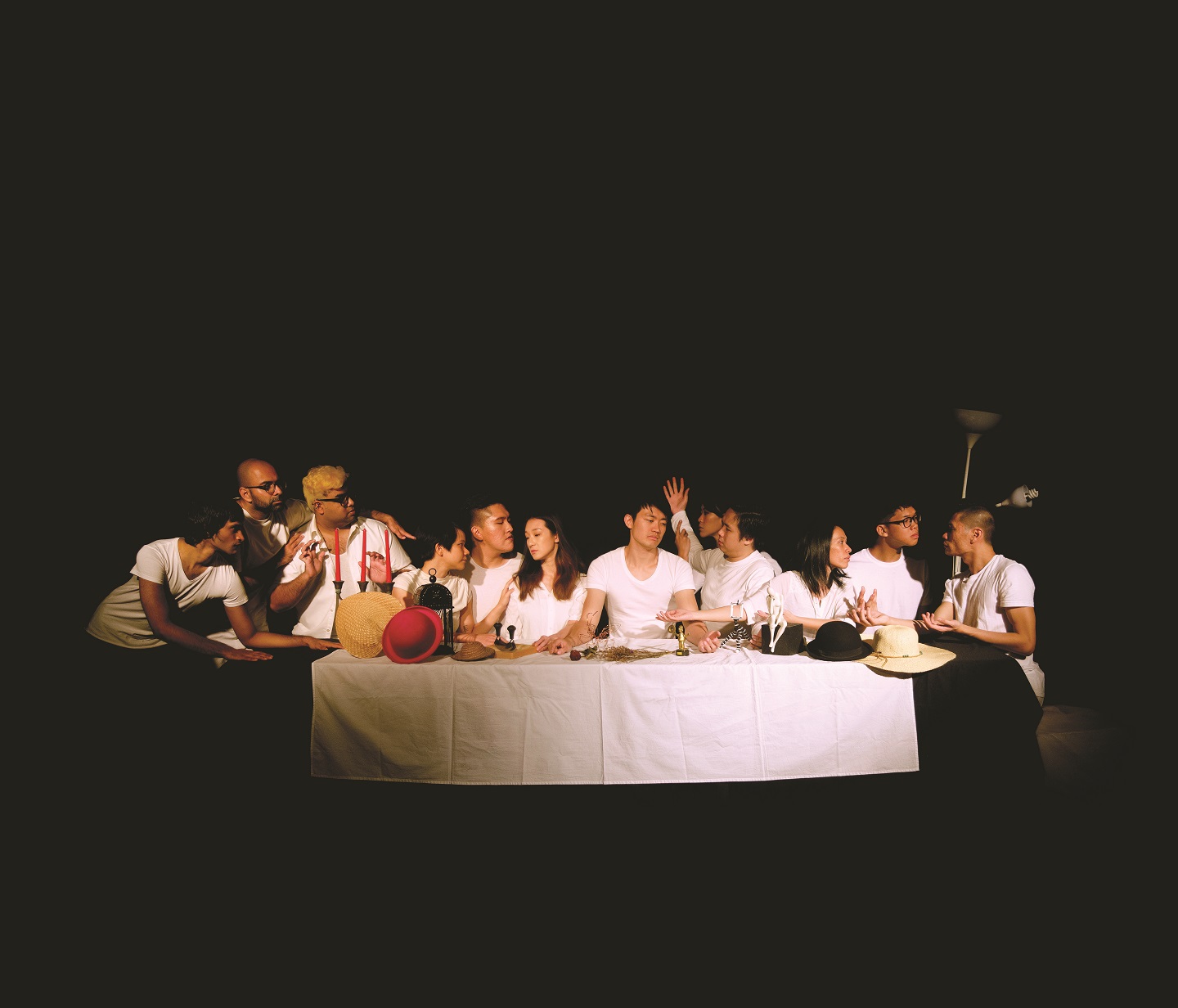
The House of Usher (Photo: theatrethreesixty)
Back after a break last year, local theatre collective theatrethreesixty starts its 2018 season with a six-week festival at an intimate space in USJ Taipan.
The wearetheatrethreesixty2018 festival features three showcases running for two weeks each. It opened with an extensively reworked version of Marina Tan’s introspective solo piece, What Am I, A Bloody Banyan Tree?.
Artistic director Chris Ling, who directs this performance, says the content of this latest version of Banyan Tree, with its trilingual script of English, Bahasa Malaysia and Hokkien, fits the bill of a Malaysian work he has been seeking.
“It’s been five years since theatrethreesixty was formed, and for those who have followed us, you will see that the works we stage always lead to one focus, which is the search [and cultivation] of Malaysian theatre. And this festival reflects that. In fact, it is our most blatant attempt yet,” Ling adds.
It is an even more pertinent theme in the light of the changing of the guard the nation went through recently. Ling explains, “This year seems more momentous because we’re celebrating Malaysia baru. The honeymoon period is just over, and in many ways, this idea is a conundrum. But for good or for bad, it’s still an important time to mark, not just as a theatre company but also as an industry. How do we go forward from here?”

Tan’s monologue expressly highlights this in the form of a question: “Who is putting Malaysia baru together? After all, we’re still the same orang lama (the same old people).”
Also indirectly provoking thought on this are the two-in-one plays Cikgu Disiplin and Sekolah Aku.
Marking the first time theatrethreesixty and Ling are presenting fully Bahasa Malaysia plays (with English subtitles), the works are done in collaboration with Revolution Stage’s Kahirunazwan Rodzy and Anomalist Productions’ Khairi Anwar — two playwrights and directors at the forefront of contemporary Malay theatre.
“It’s a pilot project. This would be the start of what we’re hoping to do together in the future — a three-way collaboration of writing and directing. It’s a bridge we’re creating in line with our goal to produce a truly Malaysian theatre without segregation. This is not easy, but we just hope, by keeping at it to try to bring both our audiences together, this will become the norm,” says Ling.
Between the two original local productions will be the staging of an adaptation of Edgar Allan Poe’s The Fall of The House of Usher. Directed by theatrethreesixty’s founding partner Nicole-Ann Thomas, the short story adds an interesting variation to the festival’s lineup.
This year seems more momentous because we’re celebrating Malaysia baru. The honeymoon period is just over, and in many ways, this idea is a conundrum. But for good or for bad, it’s still an important time to mark
Ling had wanted to showcase a physical theatre work, and Nicole-Ann suggested Poe’s macabre supernatural story of two siblings, Roderick and Madeline Usher, whose paranoid and increasingly fragile mental and physical state seems tied to their old mansion, as Roderick’s friend, the narrator, finds out when he is asked to visit.
“I used to use this story as a training tool with actors and ensembles,” says Nicole-Ann, who is well known for her experience in physical theatre. “The theme of a house that is sentient and alive is great for physicalising a story.”
To help move the performance along better, she asked Tarrant Kwok, the company’s resident technical manager and part-time playwright, to adapt the story into a script with dialogue between the characters.
Kwok observes, “Edgar Allan Poe’s work speaks quite strongly to me, and I discovered through this process how clever and nuanced his writing is. There are references to the pop culture of his time, and an insinuation that goes deeper than just intellectual fan service. As a fan of gothic-style writing, I find that the genre is not quite as didactic and so allows you to explore the microcosm of the human condition, warts and all.”
Portrayed by nine ensemble members, the house and its symbolism is the crux of this work, though whether it reflects the paranoia of the siblings or contributes to their trapped lives is up to interpretation. However, Ling remarks that when it comes to the big picture of our country’s political goings-on, what the “house” alludes to is something the audience can decide for themselves.
Nicole-Ann adds reflectively, “It’s the feeling of imminent demise. Roderick and Madeline are the last two descendants of the house of Usher. There’s a sense of the end of your entire existence on the planet, that state of mind is what makes the characters so compelling. Added to that is the house, which is contributing to their mental state, destroying them inside out… but they will not leave, they cannot, because everything outside is foreign. It’s that feeling of feeling trapped, but choosing to stay with familiarity, and in a sense, taking comfort in it.”
The wearetheatrethreesixty2018 festival is on until Aug 27 at Lot’ng Arts Space, Subang Jaya. The Fall of The House of Usher will be showing from Aug 2 to 12. Tickets are priced at RM33 and RM43 for individuals and RM99 for a festival pass. Click here to purchase. This article first appeared on July 23, 2018 in The Edge Malaysia.


